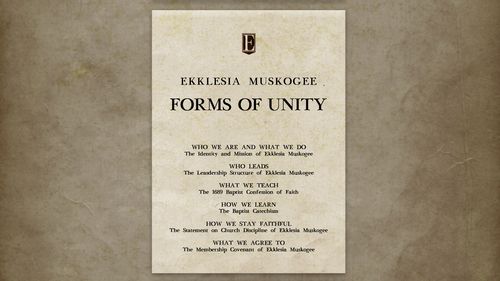Concerning Church Discipline
Any member consistently neglectful of his or her duties plainly spelled out in Scripture or guilty of conduct by which the name of our Lord Jesus Christ may be dishonored, and so opposing the welfare of the church and/or rendering doubtful a profession of faith, shall be subject to the admonition of the elders and the discipline of the church, according to the instructions of the Lord Jesus in Matthew 18:15–17 and the example of Scripture. Church discipline, then, should ordinarily be contemplated after individual private admonition has failed. Church discipline can include admonition by the elders or congregation, deposition from office, and even excommunication if necessary (see Matthew 18:15–17; 1 Timothy 5:19–20; 1 Corinthians 5:4–5).
The purpose of such discipline should be as follows:
- For the repentance, reconciliation, and spiritual growth of the individual disciplined
(see Proverbs 15:5; 29:15; I Corinthians 4:14; Ephesians 6:4; I Timothy 3:4–5; Hebrews 12:1–11; Psalm 119:115; 141:5; Proverbs 17:10; 25: 12; 27:5; Ecclesiastes 7:5; Matthew 7:26–27; 18:15–17; Luke 17:3; Acts 2:40; 1 Corinthians 5:5; Galatians 6:1–5; 2 Thessalonians 3:6, 14–15; I Timothy 1:20; Titus 1:13–14; James 1:22); - For the instruction in righteousness and good of other Christians, as an example to them
(see Proverbs 13:20; Romans 15:14; I Corinthians 5:11; 15: 33; Colossians 3:16; I Thessalonians 5:14; I Timothy 5:20; Titus 1:11; Hebrews 10:24–25); - For the purity of the church as a whole
(see I Corinthians 5: 6–7; 2 Corinthians 13:10; Ephesians 5: 27; 2 John 10; Jude 24; Revelation 21:2); - For the good of our corporate witness to non–Christians
(see Proverbs 28:7; Matthew 5:13–16; John 13:35; Acts 5:1–14; Ephesians 5:11; 1 Timothy 3:7; 2Peter 2:2; 1 John 3:10); - Supremely for the glory of God by reflecting His holy character
(see Deuteronomy 5:11; I Kings 11:2; 2 Chronicles 19:2; Ezra 6:21; Nehemiah 9:2; Isaiah 52:11; Ezekiel 36:20; Matthew 5:16; John 15:8; 18:17, 25; Romans 2:24; 15: 5–6; 2 Corinthians 6:14–7: 1; Ephesians 1:4; 5:27; 1 Peter 2:12).
Concerning The Termination of Membership
The church shall recognize the termination of a person’s membership following his or her death, and it shall also recognize the termination of a person’s membership following his or her self-professed apostasy as confirmed by congregational vote. Additionally, the church may recognize the termination of a person’s membership after he or she has voluntarily resigned or joined with another church. Membership may also be terminated as an act of church discipline at the recommendation of the elders. Such termination of membership would require two-thirds vote of the covenant members present at a regular member meeting, or special meeting called in advance in order to decide on the issue under consideration. The church shall have authority to refuse a member’s voluntary resignation or transfer of membership to another church, either for the purpose of proceeding with a process of church discipline, or for any other biblical reason.


